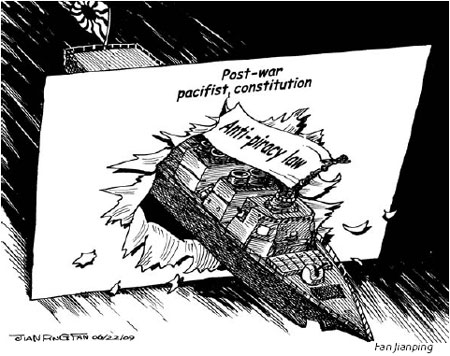
|
BIZCHINA> Review & Analysis
 |
|
Realty sector needs reality check
By Yi Xianrong (China Daily)
Updated: 2009-06-24 07:55 Owing to the negative growth of foreign direct investment (FDI) in successive months, the Ministry of Commerce and/or possibly some other departments are reportedly thinking about ways to continue to attract foreign investors. Though officials fail to clarify how and on which fields, reports are that one of the possibilities is to ease the country's limits on foreign investment in the real estate industry. The possibility, if it turns out to be true, will benefit foreign investors to enter China's profitable property market. According to the definition of the National Bureau of Statistics, real estate falls in the category of investment items and, therefore, is subject to some restrictions on foreign capital inflow, as is the case in many other countries. The document No 171, jointly promulgated by the then Ministry of Construction and other five government agencies in 2006, was exactly for this purpose. However, the Beijing and Guangdong authorities have gradually relaxed the restrictions in an effort to sustain their steady economic growth. This has been going on since last September when the central government began to reverse polices in the wake of the global financial tsunami. Available evidence indicates that both the central or local governments are weighing possible suspension of policy limitations on foreign investment in real estate and pave the way for their entry. However, the risks of allowing more foreign capital in the property industry would be considerable and unpredictable. The sector is thought to be one with scope for making enormous profit. This perception has attracted huge capital from different domestic industries, which completely distorted its structure and development pattern. The inflow of foreign capital is expected to add to the distortions, and make it impossible to accomplish the desired transformation of the country's economic development model. As an investment item, the prices of houses are market determined. Therefore, any policy measure aimed at encouraging investment in real estate would be seen as official sanction for a rise in housing prices. This goes against the central government's document No 131, issued last year for lowering of housing prices to make more people accessible to housing. Foreign capital may also drive up prices, thereby curbing normal consumption demand, creating new bubbles and posing a threat to the economy as a whole. A large-scale flow of foreign capital into the real estate sector will help foreign investors secure enormous returns. This will lead to China's wealth being transferred to other countries, and, in turn, give rise to unfair distribution of national wealth among its people, encourage corruption and create more social conflicts. It is true that the housing market has experienced a rising momentum in the last five months, with sales increasing by 20 percent in May alone. That does not mean the sluggish real estate industry is on way to full recovery.
It is normal for China's housing market to have sales increase in the first half of this year after it had suffered a 20 percent decline. The government has contributed with successive boosters over the past year. However, only reasonable prices can release the depressed housing demand among potential homebuyers and help sales of the unsold houses. In the context of the economic situation at home and abroad, and the current price levels, the country's property market - which has undergone a few years of speculative development - cannot easily recover. Under the circumstances, allowing the inflow of foreign investment will only further complicate matters. The initial recovery momentum has once again stimulated developers to launch a new round of fantastic price hikes, which will undoubtedly dampen the sector's prospects of full and final recovery. To project a favorable atmosphere, some developers have adopted questionable means, such as hiring people to make false purchases for creating the impression of there being a rush. Such crude ploys are unlikely to help ease the situation. The undeniable fact is that the country's housing market has not turned better. The government should be forthcoming with more information to make the public aware of the true conditions in the market. False promotional activities in the market are confusing the people, who need to be made aware of the real picture and cautioned against making any misguided moves. Developers should desist from pursuing short-term profits, judge market tendencies correctly and prevent any long-term fundamental damage to the housing market. Only when housing prices fall back to levels commensurate with people's capacity to buy, can the sector and the economy move toward lasting prosperity. The author is a researcher with the Institute of Finance and Banking, Chinese Academy of Social Sciences
 (For more biz stories, please visit Industries)
|
|||||